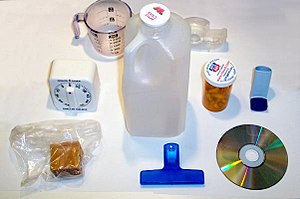Plastic: A Versatile Material Shaping Our World
Plastic, a ubiquitous material in our modern world, has revolutionized industries, transformed daily life, and raised environmental concerns. This synthetic polymer, derived from petrochemicals, exhibits a remarkable range of properties that make it indispensable in various applications. From packaging to construction, healthcare to electronics, plastic’s versatility and durability have made it a cornerstone of contemporary society.
The Evolution of Plastic
Plastic’s history dates back to the mid-19th century when the first synthetic polymer, celluloid, was developed. Since then, the rapid evolution of plastic manufacturing processes has led to the creation of a diverse array of polymers with distinct properties. Today, plastics can be categorized into various types based on their chemical composition and characteristics, such as polyethylene, polypropylene, PVC, PET, and more.
Applications Across Industries
Plastic’s versatility is evident in its widespread use across industries. In packaging, plastics offer lightweight, flexible, and cost-effective solutions for protecting goods during transportation and storage. The healthcare sector relies on sterile plastic materials for medical devices and equipment. The automotive industry utilizes lightweight plastics to improve fuel efficiency and reduce emissions. Moreover, electronics benefit from the insulating properties of plastics for components and casings.
Environmental Impact and Sustainability
Despite its numerous benefits, plastic’s environmental impact has raised significant concerns. Single-use plastics contribute to pollution in oceans and landfills, posing threats to wildlife and ecosystems. The persistence of plastic waste in the environment has prompted calls for sustainable practices and alternatives. Initiatives like recycling, biodegradable plastics, and circular economy models aim to mitigate plastic pollution and promote a more sustainable approach to plastic use.
Innovations and Future Trends
In response to environmental challenges, researchers and industries are exploring innovative solutions to reduce plastic waste and improve sustainability. Bioplastics derived from renewable resources offer a biodegradable alternative to traditional plastics. Advanced recycling technologies enable the conversion of used plastics into new materials, reducing reliance on virgin resources. Additionally, design strategies focusing on durability, reusability, and recyclability are shaping the future of plastic products.
Conclusion
Plastic’s impact on society is undeniable, with its versatility driving innovation across industries. While concerns about plastic pollution persist, efforts towards sustainability and responsible consumption are shaping the future of plastic production and usage. By embracing eco-friendly practices, investing in research and development of alternative materials, and promoting circular economy principles, we can harness the benefits of plastic while minimizing its environmental footprint. Plastic remains an essential material in our modern world; it is our responsibility to ensure its sustainable use for generations to come.
https://en.wikipedia.org/wiki/Plastic
[glossary_wikipedia]
Plastics are a wide range of synthetic or semi-synthetic materials that use polymers as a main ingredient. Their plasticity makes it possible for plastics to be molded, extruded or pressed into solid objects of various shapes. This adaptability, plus a wide range of other properties, such as being lightweight, durable, flexible, and inexpensive to produce, has led to their widespread use. Plastics typically are made through human industrial systems. Most modern plastics are derived from fossil fuel-based chemicals like natural gas or petroleum; however, recent industrial methods use variants made from renewable materials, such as corn or cotton derivatives.

9.2 billion metric tons of plastic are estimated to have been made between 1950 and 2017, more than half of which has been produced since 2004. In 2020, 400 million tons of plastic were produced. If global trends on plastic demand continue, it is estimated that by 2050 annual global plastic production will reach over 1.1 billion tons.
The success and dominance of plastics starting in the early 20th century has caused widespread environmental problems, due to their slow decomposition rate in natural ecosystems. Most plastic produced has not been reused, or is incapable of reuse, either being captured in landfills or persisting in the environment as plastic pollution and microplastics. Plastic pollution can be found in all the world's major water bodies, for example, creating garbage patches in all of the world's oceans and contaminating terrestrial ecosystems. Of all the plastic discarded so far, some 14% has been incinerated and less than 10% has been recycled.
In developed economies, about a third of plastic is used in packaging and roughly the same in buildings in applications such as piping, plumbing or vinyl siding. Other uses include automobiles (up to 20% plastic), furniture, and toys. In the developing world, the applications of plastic may differ; 42% of India's consumption is used in packaging. In the medical field, polymer implants and other medical devices are derived at least partially from plastic. Worldwide, about 50 kg of plastic is produced annually per person, with production doubling every ten years.
The world's first fully synthetic plastic was Bakelite, invented in New York in 1907, by Leo Baekeland, who coined the term "plastics". Dozens of different types of plastics are produced today, such as polyethylene, which is widely used in product packaging, and polyvinyl chloride (PVC), used in construction and pipes because of its strength and durability. Many chemists have contributed to the materials science of plastics, including Nobel laureate Hermann Staudinger, who has been called "the father of polymer chemistry," and Herman Mark, known as "the father of polymer physics".
English
Alternative forms
- plastick (archaic)
Etymology
From Latin plasticus (“of molding”), from Ancient Greek πλαστικός (plastikós), from πλάσσω (plássō, “to mold, form”).